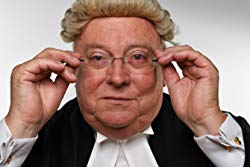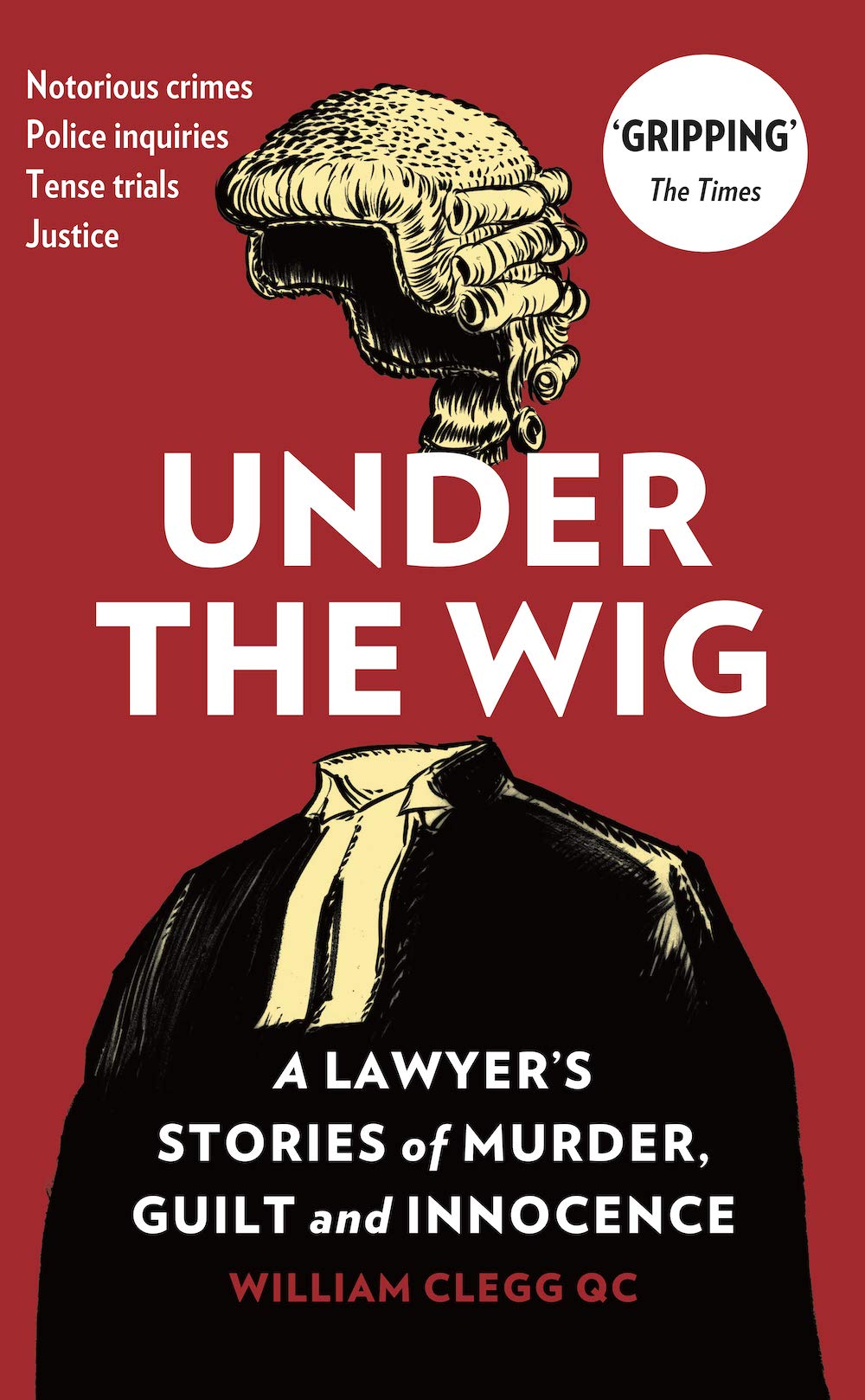Book review: Under the Wig by William Clegg QC
This is both a case book and a memoir, by one of our leading criminal practitioners. The cases are famous ones that got massive newspaper coverage at the time, and the man described in the memoir is both a typical and in some ways not a typical criminal law defender. Review by Paul Magrath.… Continue reading about Book review: Under the Wig by William Clegg QC

 William Clegg QC is a typical barrister in the sense that he fiercely upholds the right of everyone, however heinous the crime of which they are accused, to have a fair trial and be properly convicted on the evidence – or acquitted if the prosecution has failed to prove its case. But he is different in that he doesn’t conform to the (perhaps rather clichéd) assumption that all “top barristers” must have been to public school and Oxford or Cambridge before strolling into their dad’s chambers, bursting with entitlement and clutching a handed-down wig and gown.
William Clegg QC is a typical barrister in the sense that he fiercely upholds the right of everyone, however heinous the crime of which they are accused, to have a fair trial and be properly convicted on the evidence – or acquitted if the prosecution has failed to prove its case. But he is different in that he doesn’t conform to the (perhaps rather clichéd) assumption that all “top barristers” must have been to public school and Oxford or Cambridge before strolling into their dad’s chambers, bursting with entitlement and clutching a handed-down wig and gown.
Clegg did not have that traditional legal background. In many ways he is perfect exemplar of the current “I am the Bar” campaign, which encourages entrants to the profession from those of a more socially diverse range of backgrounds. His parents ran a florist’s shop in a provincial town, and his father’s ambition for his son was that he might one day run a chain of pharmacies. Clegg himself, inspired by his fictional legal hero Perry Mason, harboured hopes of becoming a lawyer. He failed to get into a grammar school and never studied the Latin he would have needed for Oxbridge, but his A-levels from the local high school were good enough to get him into Bristol university, where he read law. His tutor there was also a practising barrister and introduced him to his Inn of Court – Gray’s – and after consuming the required number of dinners in hall, Clegg was called to the Bar.
“Some crimes are so savage and so unsettling that detectives come under an almost unbearable pressure to solve them.” That’s when mistakes are made, and that’s why it’s so important that an accused receive a fair trial. Examining a number of such cases in which he himself has acted, William Clegg explains the role of the criminal defence barrister in making sure that the justice system not only protects the innocent but also ensures that the guilty are properly tried.
He deals early on with that old chestnut of a lay person’s question, “How can you defend someone you know is guilty?” The answer is that, if you really do know they are guilty, or they admit as much, then you can’t present a case to the court which suggests they are innocent. You can only advise on the consequences of a guilty plea and attempt to mitigate the severity of the sentence.
“Murder, though, is different.” Clients don’t admit to murder, but if they admit to the killing at all it is in the hope of relying on a defence, such as provocation or diminished responsibility, which will reduce the offence to manslaughter, or even self-defence which will exonerate them completely.
More difficult, by far, he says, is defending a person you believe to be innocent.
“The thought that an innocent man may be incarcerated for the rest of their life because I have failed to expose the weakness in the case against him means I don’t sleep at all well at night. It is a worry that gnaws. This was the case with the man who was missing his dog.”
That man was Colin Stagg, wrongly accused of the notorious and horrific Wimbledon Common Murder. The police used a controversial technique of psychological profiling combined with honeytrap operation to find the man they thought must have been the brutal killer of Rachel Nickell, a young mother out walking on the common with her toddler and dog in 1992. It’s the first of Clegg’s case studies and makes for fascinating reading, but even more interesting is the way it is related to a second murder case, that of Samantha Bisset in 1994, whose killer he believed was the real culprit for the earlier case.
Stagg was eventually allowed to go free, after the controversial honeytrap evidence was ruled inadmissible, but his ordeal could so easily have resulted in a serious miscarriage of justice. Clegg is almost sorry not to have had a chance to cross-examine the police witnesses, but observes that “Defence barristers will happily take the folding of the prosecution case above being able to tear into a witness.” Ultimately, the client comes first.
In these and in each of the subsequent case studies, Clegg explains the background to the case, the legal and evidential issues, and the way it was eventually decided. As well as notorious murders, his cases range from war crimes to phonehacking. He doesn’t win them all, and even when he does win he doesn’t vainly glorify his role. The clear, non-technical prose makes the book an easy but compelling read. I would strongly recommend it to anyone who was interested in the way the criminal justice system works, and the role of defence barristers in it. For those already familiar with the law, there is enough tradecraft and professional insight to ensure that they, too, will find much to learn from this memoir.
Caveat. It was only when I read the Acknowledgements that I realised the book had been ghosted, by a former Fleet Street hack whom Clegg had successfully defended in one of the cases thrown up by Operation Elvedon. So praise for the clear prose must go to John “Troupy” Troup, formerly of The Sun.
Secondly, it may be owing to Clegg’s having acted in the main News of the World phone-hacking trial that he expresses what is arguably a rather naïve view of the prosecutions:
“With the advantage of hindsight, I believe that the journalists could have been dealt with in a fairer, more effective way. Phone hacking appeared to be widespread practice at the News of the World and apparently at other papers too, but I think that formal cautions could have been issued to the culprits along with a strong warning that anyone caught hacking in the future would be prosecuted. I think if that message had gone out loud and clear hacking would have been stopped in its tracks.”
You have only to look at the immense power wielded by the press, still, in shutting down the Leveson inquiry and reversing legislation intended to promote effective regulation, to see that no amount of cautions and strong warnings would have stopped anything in its tracks.
Buy the book: Under the Wig: a lawyer’s stories of Murder, Guilt and Innocence, by William Clegg QC (Canbury Press, £16.99).
Read the interview: LegalHackette (Catherine Baksi) spoke to Clegg over lunch.
Image of William Clegg QC from his Amazon page (where the book is discounted).